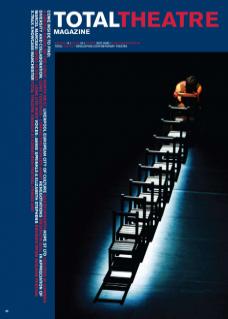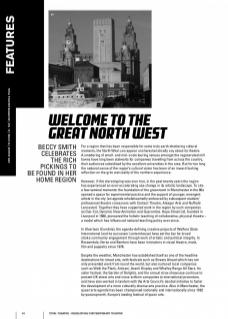For a region that has been responsible for some truly earth-shattering cultural moments, the North West can appear uncharacteristically coy about its theatre. A smattering of small- and mid- scale touring venues amongst the regenerated mill towns have long been stalwarts for companies travelling from across the country, their audiences subsidised by the excellent universities in the area. But for too long the national sense of the region’s cultural vision has been of an inward-looking reflection on the grim wet reality of the northern experience.
However, if this stereotyping was ever true, in the past twenty years the region has experienced an ever-accelerating sea change in its artistic landscape. To cite a few seminal moments: the foundation of the greenroom in Manchester in the 80s opened a space for experimental practice and the support of younger, emergent artists in the city (an agenda wholeheartedly embraced by subsequent student/ professional theatre crossovers with Contact Theatre, Alsager Arts and Nuffield Lancaster). Together they have supported work in the region by such companies as Doo-Cot, Dynamic New Animation and Quarantine. Hope Street Ltd, founded in Liverpool in 1988, pioneered the holistic teaching of collaborative, physical theatre – a model which has influenced national teaching policy ever since.
In Ulvertson (Cumbria), the agenda-defining creative projects of Welfare State International (and its successor Lanternhouse) have set the bar for broad stroke community engagement through work of artistic and political integrity. In Rossendale, Horse and Bamboo have been innovators in visual theatre, mask, film and puppetry since 1978.
Despite the weather, Manchester has established itself as one of the headline destinations for street arts, with festivals such as Streets Ahead which has not only presented work from round the world, but also nurtured local companies such as Walk the Plank, Artizani, Avanti Display and Whalley Range All Stars. Its sister festival, the Garden of Delights, and the annual xtrax showcase continue to present UK street arts and cross-artform companies to international promoters, and have also worked in tandem with the Arts Council’s decibel initiative to foster the development of a more culturally diverse arts practice. Also in Manchester, the queer arts agenda has been championed nationally and internationally since 1992 by queerupnorth, Europe’s leading festival of queer arts.

